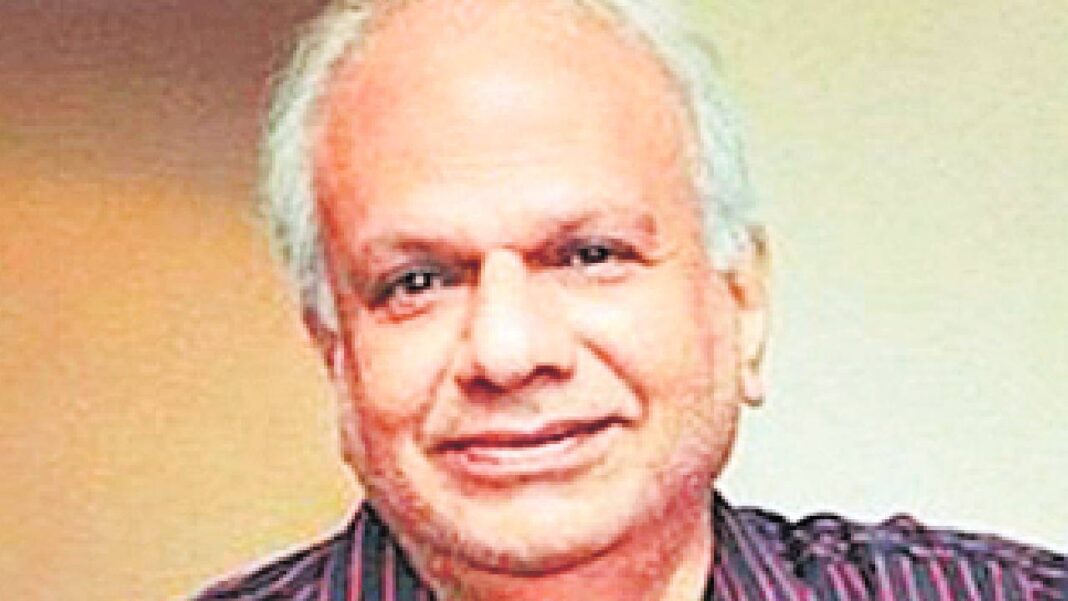Entrepreneur-author Nidhi Dalmia, recently brought to us his second book titled Afternoon, which has been a great read just like his first book “Harp”. In an exclusive chat with The Pioneer, the author shares some insights about the book, thoughts while writing it, and more.
K. Ramya Sree
Started his journey of writing from “Harp” in 2017 which made headlines due to the captivating, honest, raw and cross border relationship, Nidhi Dalmia launched his new book, “Afternoon”, which encapsulates the essence of love, cultural revolutions and the challenges of the intercontinental-relationships.
Set in San Francisco Bay Area to New York, Kashmir and New Delhi, Dalmia’s unique perspective and masterful storytelling makes “Afternoon” a must-read for anyone looking for a captivating and thought-provoking story.
The Pioneer got in touch with the author to know more about the book, the thought that went into writing it, and more.
To introduce him, he was born into one of India’s oldest industrialist families, and was surrounded by a business and industry culture since childhood. His late father, Ramkrishna Dalmia was one of the top three industrialists in India for several decades and led businesses like cement, chemicals, jute, paper, textiles, sugar, aviation, insurance, banking, dairy, bakery products and electric supply, to name only some.
Now, coming back to the book, the author says he took inspiration from the love and longing he had experienced. “The circumstances that pull people under, the effort to reconcile conflicting goals inter-se as well as within oneself. I wanted to write about the universality of human emotions and feelings. To tell a tale about how love and obligation compartmentalise people, making them choose between love and duty, between the head and the heart, between one’s social contract and what one wants. The individual choices one has to make with profound consequences. To portray a deeply felt love story, as different as any personal experience can be,” shared Dalmia, who wants to convey the message of living life with no regrets through this book.
Moreover, what attracted us even more about the book is its title, “Afternoon”. Isn’t it intriguing? Well, let us hear from him on what drove him to title the book Afternoon: “A lot can happen in an Afternoon. Afternoon is a golden in -between time which can be timeless, transcendent. It can be conducive to letting go, to loving where one loses a sense of everything else.”
can happen in an Afternoon. Afternoon is a golden in -between time which can be timeless, transcendent. It can be conducive to letting go, to loving where one loses a sense of everything else.”
The book covers various themes and subjects. Asked which particular theme resonates the most with him personally, he informed us: “Romance. Love is truly a splendid thing, and there is nothing more important than love in a person’s lifetime. Nothing like love makes life that much more meaningful and worthwhile. It imbues it with that extra and special meaning. Things become that much more precious because you have this person in your life. And because she/he is there, life is truly worth living and you want things to be as close to perfect as possible. Even when one is a positive thinker with a positive outlook on things, love makes it infinitely more so. Falling in love changes everything. It makes the world go around.”
Furthermore, the book explores the complexity of love and relationship and personal growth. Sharing more deets, he explained: “Interaction with others is complex. In having relationships, one grows and evolves: all the more in relationships of love. Growth is an inevitable concomitant. With growth comes an ability to interact in a more layered, textured fashion, deeper and more satisfying at various levels. This is irrespective of the outcome of the romance. The learning and growth takes place in any case. Entrepreneurs like others have many aspects. Fulfillment comes from finding time to act on wishes, not to suppress them because they don’t deal with the main vocation. The transition from the left side of the brain to the right side or vice versa can be seamless. They are connected by synapses amongst other things. We have both sides – we have to let the energy flow in the right direction. So, the transition is more of changing one’s mindset. Of moving from Key Result Areas and Management by Objectives back to the world of childhood, of fast flowing rivers, rainbows and pixies. In Management one tries to set Systems, to have things run smoothly, like well-oiled machines. Management by Exception. In writing one reverts to a different self, which was never lost.”
Writing a book requires discipline and dedication. Going ahead, we asked him to share some of the strategies or routines he employed to stay motivated and focused during the writing process, to this, he said, “To stay inspired, one has to at times imagine oneself in it, as an actor in the real-life drama being portrayed on stage. One has to become part of it and live it. Shakespeare said – “All the world’s a stage…” To stay motivated, one has to believe in oneself and in the story. One has to get immersed in it. Each word has to be well thought out. One cannot waffle or pad. Quantity is not important, quality is. Therefore, sincerity counts. Show don’t tell. This is universal advice given to writers. It really works. One has to not worry about the critics. One can’t please everyone. Enough readers have to like it. There has to be discipline to sit without disturbance and write for a certain amount of time or a certain number of words every day, even if some days it doesn’t go as well. Everyday won’t be the same. The place of writing should preferably be different from the place of other work.”




